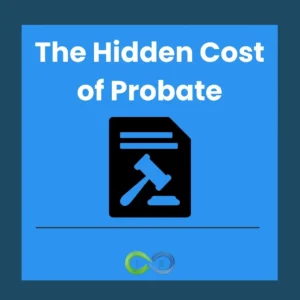Minnesota Wills vs. Trusts
Table of Contents
US Map For The Different Will and Trust Requirements by State
Interested in other state’s law regarding wills and trusts? Click the ABOVE state you want to be taken to.
Minnesota Will Requirements
A Minnesota Last Will and Testament should include:
- Age and Capacity: Testator must be “of sound mind” and at least 18 years old
- Format: Must be in writing
- Signature: Must be signed by the testator, a court-appointed conservator pursuant to a court order, or another individual signing for the testator at the testator’s direction and in the testator’s presence
- Witnesses: Must include signatures of at least two witnesses
Witness Requirements
For Minnesota wills:
- Witnesses must sign the document within a reasonable time after observing the testator’s signature or hearing the testator acknowledge the signature’s validity
- Anyone who is generally competent to act as a witness under Minnesota law can witness a will
- A Minnesota will that is witnessed by an interested party (i.e., someone who receives a personal and beneficial interest under the will) is not invalid
Document Incorporation
Minnesota law permits wills to incorporate by reference other documents in existence when the will is executed if the will clearly expresses an intent to incorporate the other document and the other document is sufficiently described to allow identification.
Memorandum of Personal Property
Minnesota specifically recognizes a testator’s right to incorporate by reference a written statement or list disposing of tangible personal property (often called a “memorandum of personal property”). The memorandum must be:
- In the testator’s handwriting or signed by the testator
- Referenced in the will
- Identify property and beneficiaries with reasonable certainty
The written memorandum can be created before or after execution of the will, and the testator may make handwritten revisions to the document. In Minnesota, a memorandum of personal property cannot be used to dispose of real estate, money, coin collections, or property primarily used for trade or business.
Self-Proved Wills
Although notarization is not required to create a valid will in Minnesota, state law allows a will to be “self-proved” if it includes a notarized affidavit executed by the testator and witnesses. The affidavit states that the testator signed the will voluntarily in the witnesses’ presence with the required legal capacity and while not under any undue influence.
When present, the self-proved affidavit serves as evidence of the will’s authenticity and allows for admission in probate without further witness testimony. The Minnesota legislature provides a form self-proving affidavit, at Minn. Stat. §524.2-504.
COVID-19 Harmless Error Rule
In recognition of COVID-19’s impact, the Minnesota legislature enacted a “harmless error” rule, allowing for admission in probate of certain documents that do not technically satisfy the required formalities for a written will. Under that law, a non-conforming document shown by clear and convincing evidence to be intended as a decedent’s will (or a codicil, revocation, or revival of a decedent’s will) can be treated as though it were a valid will.
The harmless error rule only applies to potential wills executed after March 13, 2020, but before February 15, 2021.
Need help creating the right estate plan for your Minnesota family?
Our estate planning specialists can help you navigate Minnesota’s unique laws and create a personalized strategy.
THE ULTIMATE FREE DOWNLOAD
The Estate Planners Tactical Guide
Essential Legal Protection for Achievers

Amendment, Revision, and Revocation of Minnesota Wills
Amending a Minnesota Will
A Minnesota will can be amended through:
- Execution of a codicil that satisfies all formalities for execution of a valid will
- Execution of a later will that satisfies all formalities for execution of a valid will
Revoking a Minnesota Will
A Minnesota will may be revoked by:
- Any “revocatory act” performed by the testator (or another person in the testator’s presence at the testator’s direction) with the intent of revoking the will or any part thereof
- “Revocatory acts” can include physical destruction, such as through burning or tearing
- The testator’s execution of a later will that expressly revokes the prior will or includes inconsistent provisions
A new will that does not expressly revoke a prior will is presumed to revoke the prior will by inconsistency if the later will completely disposes of the testator’s estate. If a later will does not completely dispose of the testator’s estate, it is presumed to be intended as a supplement to the earlier will, with the later-executed will controlling in the event of any conflicting provisions.
Effect of Divorce
If a testator is divorced after executing a Minnesota will, any provisions in favor of the former spouse are deemed to have been revoked unless the will, a court order, or a marital property agreement expressly provides otherwise. Any property subject to provisions revoked by divorce is treated as if the former spouse had predeceased the testator. Provisions deemed revoked due to divorce are revived if the testator later remarries the same spouse.
Effect of Marriage After Will Execution
If a testator marries after executing a will and the surviving spouse survives the testator, the surviving spouse inherits the same share of the estate he or she would have inherited had the testator died intestate.
A later-wed spouse’s share is inapplicable if:
- The spouse has waived the share through a pre- or post-nuptial agreement
- The will or another writing provides evidence that the omission was intentional
- The surviving spouse is designated as a devisee or provided for under a trust referenced in the will
- The testator provided for the spouse outside the will and intended the other provision to take the place of a share under the will
Children Born After Will Execution
If a child is born to or adopted by a testator after execution of a Minnesota will—and if the testator’s will does not provide for or appear to intentionally omit the child—the child inherits a share of the estate.
- If the testator has no other children, the share is equal to what the child would have inherited had the testator died intestate
- If the testator has other children provided for under the will, the share is based upon devises to other children
An after-born child’s share is inapplicable if the testator devises substantially all of the estate to the after-born child’s other parent.
Holographic and Oral Wills
Holographic Wills
Minnesota law does not recognize holographic (or handwritten) wills. Subject to the above “harmless error” rule, a will written in the testator’s handwriting must satisfy all other requirements for creation of a valid will to be admissible in probate.
Oral (Nuncupative) Wills
Oral (or “nuncupative”) wills are not recognized under Minnesota law.
Minnesota Trust Requirements
Legal Framework and Trust Purposes
Minnesota trusts are primarily governed by the Minnesota Trust Code, enacted by the legislature at Minn. Stat., §§501C.0101, et. seq. The purpose of a Minnesota trust must be:
- Lawful
- Not inconsistent with the state’s public policy
- Capable of being achieved
In general, the purposes of a trust and the trust itself must be for the benefit of the trust’s beneficiaries.
Trust Creation Methods
Minnesota trusts can be created through:
- Transfer of property by a grantor to a trustee (either during life or through a will or other testamentary instrument)
- A grantor’s declaration that identifiable property is owned as trustee
- Exercising a power of appointment in favor of a trustee
Under certain circumstances, a trust can also be presumed under Minnesota law if property is purchased by one person and the purchase price is paid by another.
Trust Validity Requirements
For a trust to be valid under Minnesota law:
- The settlor must express an intent to create the trust
- The settlor must have adequate capacity (for revocable trusts, measured under the same standard applying to wills)
A Minnesota trust is void to the extent its creation was induced through fraud, duress, or undue influence.
Trustee and Beneficiary Requirements
Minnesota trusts must have:
- A definite beneficiary (subject to exceptions such as for charitable trusts, trusts for the care of animals, and certain trusts created for noncharitable purposes)
- A trustee with actual duties to perform
A Minnesota trust in not invalid—and title to assets is not deemed to “merge”—if a trust’s sole trustee is also its sole beneficiary.
Trustee Duties
The trustee of a Minnesota trust has a duty to administer a trust prudently, taking into account the trust’s terms, purposes, and surrounding circumstances. Trustees who manage assets are governed by the “prudent investor rule,” though that rule may be expanded, restricted, or eliminated by the trust instrument.
To the extent a trust is revocable, a trustee’s duties are owed exclusively to the settlor under Minnesota law.
Written vs. Oral Trusts
Though most trusts are evidenced by a written instrument setting forth the trust’s terms, Minnesota law allows oral trusts in some situations. However, the creation and terms of an oral trust must be established by clear and convincing evidence, and testamentary trusts and trusts involving conveyance of real estate must be evidenced in writing.
Trust Personal Property List
Similar to wills, Minnesota trusts may be amended by a separate written list or statement making dispositions of tangible personal property not specifically addressed in the trust instrument. The list must be:
- Referenced in the written trust
- Written in the settlor’s handwriting or signed by the settlor
- The items and beneficiaries must be identified with reasonable certainty
The written list—which may be prepared before or after the trust instrument and can be altered by the settlor—cannot be used for distributions of cash, coin collections, or property used in trade or business.
Trust Termination
Minnesota trusts terminate upon:
- Revocation or expiration under the trust’s own terms
- When there is no purpose of the trust remaining to be achieved
- When the trust’s purposes become unlawful or impossible to achieve
A trust may also be modified or terminated by a court upon the petition of the settlor, trustee, and/or beneficiaries. In some circumstances, modification or termination of a trust may be made upon the consent of the trustee and all beneficiaries. A court may also modify a Minnesota trust to conform to the settlor’s intentions, to achieve the settlor’s tax objectives, to correct mistakes, or if the trust has become uneconomical.
THE ULTIMATE FREE DOWNLOAD
The Estate Planners Tactical Guide
Essential Legal Protection for Achievers

Special Considerations
Estate Taxes
State-Level Estate Tax
Minnesota imposes an estate tax on estates over $3 million, with rates from 13-16%. A $2 million deduction applies to qualifying small businesses or farms, potentially shielding up to $5 million total. There’s no inheritance tax.
Simplified Probate
Small Estate Affidavit Process
Minnesota law allows the successor to a decedent to claim property via affidavit if the total value of the decedent’s estate (after subtracting liens and encumbrances) is not greater than $75,000. The affidavit can enable certain small estates to bypass probate.
Minnesota also allows for a simplified summary administration process if:
- There are no claims against the estate, or
- The estate value is below the sum of spousal and children’s exemptions, costs of administration, funeral expenses, late-life medical costs, and certain taxes and preferred debts
Non-Probate Transfers
Transfer-on-Death (TOD) Deeds and Vehicle Titles
Beneficiary Deeds
Minnesota is among the minority of states that recognize TOD designations on real estate deeds (often called “beneficiary deeds”). Ownership of real property with a TOD designation automatically transfers to the named beneficiary upon the owner’s death, avoiding the need for probate.
Vehicle Titles
Minnesota does not recognize TOD designations on vehicle titles.
Minnesota Spendthrift Trusts
Although the general rule is that creditors of a trust’s beneficiaries may attach a beneficiary’s interest in a trust, Minnesota law recognizes “spendthrift provisions,” which prevent creditors of beneficiaries from attaching trust assets until actually distributed to the relevant beneficiary.
Creditors of a revocable trust’s settlor can attach trust assets as long as the settlor remains living (or, upon death, through estate claims). In the case of irrevocable trusts, settlors’ creditors can attach trust assets that could be distributed for the settlor’s benefit.
Need help creating the right estate plan for your Minnesota family?
Our estate planning specialists can help you navigate Minnesota’s unique laws and create a personalized strategy.
Wills vs. Trusts: Comparison
| Feature | Wills | Trusts |
|---|---|---|
| When It Takes Effect | After death | Can be immediate (living trust) or after death (testamentary trust) |
| Probate Process | Requires probate | Assets in trust avoid probate |
| Privacy | Public record | Generally private |
| Challenges | Can be challenged in probate court | More difficult to challenge |
| Cost to Create | Generally less expensive | Usually more expensive |
| Ongoing Administration | None until death | May require ongoing management |
| Protection During Incapacity | None (requires separate power of attorney) | Can provide management if grantor becomes incapacitated |
| Minnesota Special Feature | COVID-19 harmless error rule; personal property memorandum; simplified probate under $75K | Oral trusts; beneficiary deeds for real estate; spendthrift provisions; special tax planning for $3M threshold |
Conclusion
Creating a will or trust does not have to be difficult or intimidating for Minnesota residents. However, certain circumstances—like second marriages, stepchildren, aging parents, special needs beneficiaries, guardianships, and business interests—can add complexity and result in unforeseen consequences.
The state offers several advantageous estate planning mechanisms. The simplified probate process for estates under $75,000 can significantly reduce administrative complexity and expense. Minnesota’s recognition of transfer-on-death real estate deeds provides an important tool for non-probate transfers of significant assets.
The state’s spousal protection framework is particularly notable, with elective shares that scale from 3-50% based on the length of the marriage. This sliding scale approach provides substantial protection for long-term marriages while offering more flexibility in shorter marriages.
Minnesota’s flexibility is also evident in its recognition of oral trusts in certain circumstances and its COVID-19 “harmless error” rule for wills executed during the pandemic. While this latter provision was temporary, it demonstrates the state’s ability to adapt estate planning requirements to extraordinary circumstances.
When any out-of-the-ordinary issues are present, it’s advisable to consult with an experienced attorney familiar with and licensed under Minnesota law to ensure your estate plan takes full advantage of the state’s provisions while minimizing exposure to estate taxes and potential probate complications.
Ready to Protect Your Minnesota Family’s Future?
Join the thousands of Minnesota families who have secured their legacy with our personalized estate planning strategies. Our approach helps you avoid probate, protect assets, and ensure your wishes are carried out exactly as you intend.
- ✓ Avoid costly probate and family disputes
- ✓ Maintain privacy of your financial matters
- ✓ Protect assets during incapacity
- ✓ Create safeguards for children and loved ones
Explore Estate Planning Strategies
Free consultation with our estate planning specialists
THE ULTIMATE FREE DOWNLOAD
The Estate Planners Tactical Guide
Essential Legal Protection for Achievers

FAQs: Minnesota Wills and Trusts
Q: What are the requirements for a valid will in Minnesota?
A: A Minnesota will must be in writing, signed by the testator (18+ and of sound mind) or at their direction in their presence, and attested by two competent witnesses who sign after observing the testator’s signature or acknowledgment. A notarized affidavit can make it self-proved.
Q: Does Minnesota recognize holographic or oral wills?
A: No, Minnesota does not recognize holographic (handwritten) or oral (nuncupative) wills unless they meet standard witnessing rules. A temporary COVID-19 ‘harmless error’ rule applied to wills from March 2020 to February 2021 if intent was proven by clear evidence.
Q: How can I avoid probate in Minnesota?
A: Avoid probate with living trusts, joint ownership with right of survivorship, payable-on-death (POD) accounts, transfer-on-death (TOD) securities, or TOD deeds for real estate. Small estates under $75,000 can use an affidavit process.
Q: What is a transfer-on-death deed in Minnesota?
A: A transfer-on-death (TOD) deed allows you to name a beneficiary to inherit real estate upon your death without probate. You retain full control during your lifetime, and Minnesota recognizes this for real property, but not vehicle titles.
Q: What protections do surviving spouses have in Minnesota?
A: Minnesota provides a spousal elective share of 3-50% of the augmented estate (based on marriage length), including probate and some non-probate assets, ensuring protection against disinheritance unless waived.
Q: What is Minnesota’s estate tax in 2025?
A: Minnesota imposes an estate tax on estates over $3 million, with rates from 13-16%. A $2 million deduction applies to qualifying small businesses or farms, potentially shielding up to $5 million total. There’s no inheritance tax.





